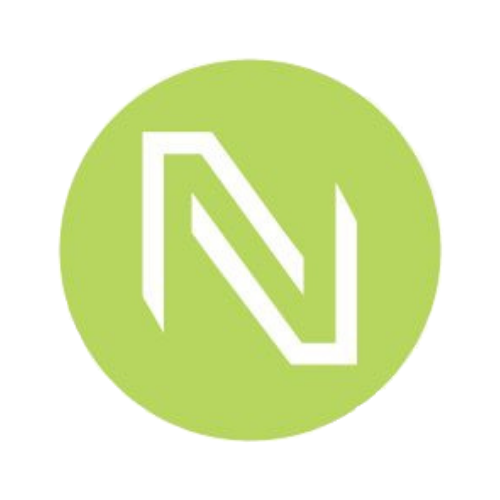Are You Spending More Time Focusing on Your Strengths or Weaknesses?
This blog was originally written by Tim Hebert for his company Atrion. For more than two decades, Tim served as CEO and President of Atrion, a Rhode Island-based IT services firm that grew from a two-man, spare-bedroom operation to a $160-million, 260-plus employee organization.
Tim will be the featured speaker at the upcoming Women in Leadership Nexus event, taking place May 16 in Providence, RI (details and registration here). This blog touches on several of the core themes Tim will raise to the surface during the leadership seminar.
It seems my entire life people have had no problem pointing out my weakness. They complement my innate desire to innovate, create and evolve while lamenting my perfectionist qualities that lead me to believe that good is never good enough; they point out spelling errors in my communications, not always realizing I am severely dyslexic.
So, like many, I’ve long subscribed to the belief—or fallacy—that if I could “fix” my weaknesses everything would be all right.
But over time I began to discover a new truth; no matter how much I worked on fixing my deficiencies, that exercise proves futile. After all, can we really “fix” our weaknesses? We can learn new skills. But can we really turn a weakness into a strength? Research suggests that we can’t. Instead, we can learn to stop obsessing over them and, instead, choose to play to our strengths.
For example, I am not a detail-oriented person. Tending to specific, minutia detail—the dotting of the I’s and the crossing of the t’s—is not a strength of mine. Instead, I am a thinker. A dreamer. I am fueled by strategic thinking, visionary exploration and the notion of a growth mindset. It means that I often have BIG ideas yet need help from others to validate them and drive them over the finish line. But that’s OK. It means I am focusing on my strengths (not weaknesses) and actively teaming with others who fall more naturally into an execution or deliberation zones.
Playing to Your Strengths
The concept of leveraging your strengths is one I first came across in the early 90’s when I discovered some amazing insight about strengths and weaknesses from the book “Soar With Your Strengths” by Donald Clifton and Paula Nelson. Donald was an American psychologist and he is long considered to be “the father of Strengths-Based Psychology and the grandfather of Positive Psychology.” In fact, he developed the Clifton StrengthsFinder assessment.
Have you heard of it? Have you taken it?
The idea of strengths-based psychology posits that when people understand their inherent strengths, they can focus on what they do best and thereby enjoy greater success. What’s more, when they identify their talents and develop them into strengths, people are more productive, perform better and are more engaged. The StrengthsFinder assessment is available to help individuals discover their top five strengths, identify their dominant talents and learn how to maximize their talents.
The test introduces a series of statements and asks you to indicate which resonate most strongly with you. Upon completion of the test, you are provided with an in-depth report as to your top five strengths and how to leverage them fully in your personal and professional worlds. No surprise here… my top five strengths are skills like Maximizer, Individualization and Strategic—skills that are heavy in the strategic, influence and relationship building zones.
Why Are Strengths Important?
We all have strengths—a unique combination of talents, knowledge, and skills. And our strengths are the innate traits and abilities we use in our daily lives to complete our work, relate with others and achieve our goals. These patterns of behavior, thoughts, and feelings produce a high-degree of satisfaction and pride; generate both psychological and/or financial reward; and present measurable progress toward excellence.
Research has found that people who use their strengths every day are six times more likely to be engaged on the job. In addition, teams that focus on their strengths are 12.5 percent more productive. Let’s give thought to that last stat for a moment. Imagine the outcomes you could derive organizationally if you staffed your departments based on complementary yet contrasting strengths? If you hired to ensure that you had representation from all the StrengthsFinder zones: strategic, execution, influence and relationship building? Suddenly, with the right team, it becomes easier to fixate on one’s strengths versus weaknesses.
How Do You Know Your Strengths?
The StrengthsFinder assessment is surely a great place to start, but I think there are other way you can uncover your strengths. For instance, you can listen to that for which you yearn. Ask yourself questions such as:
- When do I feel I am in my most natural working zone?
- What types of tasks/responsibilities tug at your brain saying, “Hey, try me!”
- What passions do I have that I need to explore?
The answers will give you insight into your dominant strengths. For instance, if you gravitate towards writing assignments, positioning statements and team meetings, you likely have communication-based strengths. Moreover, you can pay attention to moments of excellence—those times you stand out. What is the commonality among those experiences? Why were they “wins?”
As you start exploring the power of strengths-based learning, you may also like from Tim:
